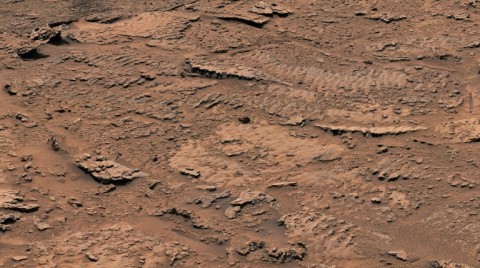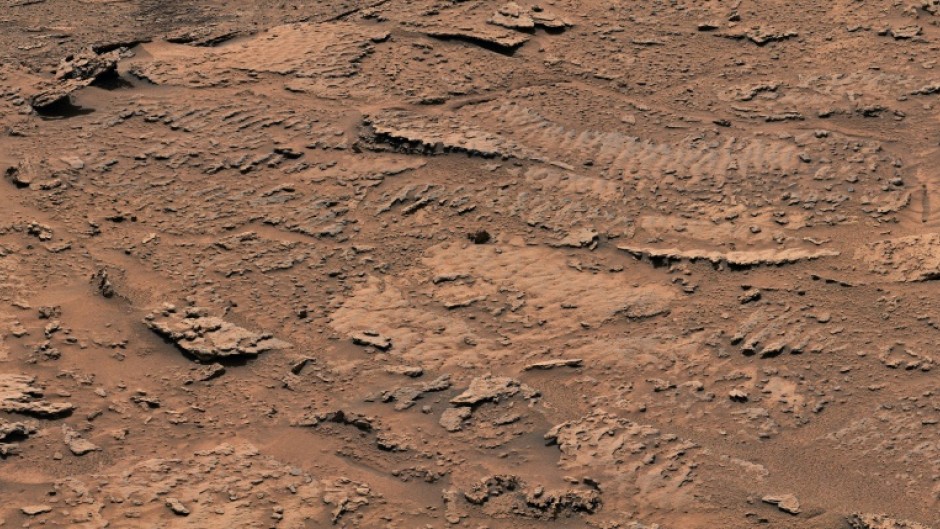
WASHINGTON - NASA's Curiosity rover has found wave-rippled rocks -- evidence of an ancient lake -- in an area of the planet expected to be drier, the US space agency said.
"This is the best evidence of water and waves that we've seen in the entire mission," said Ashwin Vasavada, Curiosity's project scientist at NASA's Jet Propulsion Laboratory in California.
The rover, which has been exploring Mars since 2012, beamed back stunning pictures of rippled patterns on the surface of rocks caused by the waves of a shallow lake billions of years ago.
Curiosity had previously found evidence that lakes once covered parts of Mars in the salty minerals left behind when they dried up.
But NASA scientists were surprised to find such stark evidence of water in the Gale Crater that the rover is now exploring.
"We've climbed through many lake deposits during our mission but have never seen wave ripples this clearly," Vasavada said in a statement.
"This was especially surprising because the area we're in probably formed at a time when Mars was becoming drier," he said.
Curiosity is exploring the foothills of a five-kilometre tall mountain known as Mount Sharp.
The rover has also spotted debris in a valley that was washed down by wet landslides on Mount Sharp, NASA said.
"This landslide debris is probably the most recent evidence of water that we'll ever see," Vasavada said. "It will allow us to study layers higher up on Mount Sharp that we can't reach."
NASA said Mount Sharp provides a sort of "Martian timeline" to scientists with the oldest layers at the bottom and youngest at the top.
This allows them to "study how Mars evolved from a planet that was more Earth-like in its ancient past, with a warmer climate and plentiful water, to the freezing desert it is today," it said.
Another Mars rover, Perseverance, landed on the Red Planet in February 2021 to look for signs of past microbial life.
The multi-tasking rover will collect 30 rock and soil samples in sealed tubes to be sent back to Earth sometime in the 2030s for lab analysis.

